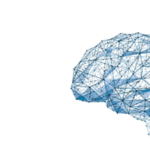The NIH Office of Extramural Research employs artificial intelligence (AI) and digital technologies to streamline grant management, improving efficiency across several processes and ensuring the most promising research receives funding. With over 75,000 applications reviewed in fiscal year 2023, this is no small task. NIH introduced the Automated Referral Tool in 2022 to assist with assigning review applications. This AI-based tool uses data from previous review cycles to help NIH referral staff assign applications to the appropriate review branches, ensuring each application receives timely and fair evaluation.
Efficient Matching and Overlap Detection
Following the initial referral, NIH must match applications to the most suitable program officers, a previously time-consuming task. To streamline this step, NIH collaborated with the National Institute of General Medical Sciences to develop an enterprise-level AI tool within its grants management system. This tool uses natural language processing to compare application abstracts with program officer expertise, suggesting efficient matches. Additionally, AI assists in detecting overlapping applications where duplicate or similar proposals may go unnoticed. In the first quarter of 2024, NIH flagged and withdrew 243 overlapping applications, avoiding redundant funding and better allocation of resources to diverse, innovative ideas.
Assessing Data Management Plans and Improving Public Reporting
NIH is also exploring AI to evaluate the Data Management and Sharing Plans required for grants. These plans support open data sharing to accelerate scientific discovery, and AI tools ensure they meet NIH standards efficiently. Furthermore, NIH is testing AI’s potential to improve public reporting on funded projects. This technology could enhance NIH’s Research, Condition, and Disease Categorization system, allowing for greater accuracy and saving valuable staff time on reporting tasks.
Maintaining Confidentiality and Responsible AI Use
While AI tools offer many advantages, NIH is committed to maintaining confidentiality, particularly in the peer review process. Sensitive grant materials are restricted from generative AI to ensure that human expertise and integrity remain at the forefront of reviews. Recently, NIH released a resource outlining responsible AI practices for research, including guidelines on participant protections, data management, and biosecurity. This careful approach ensures AI is used effectively and ethically within NIH’s operations.
Through these advancements, NIH continues to refine its grant management processes, reducing staff workloads and enhancing its ability to support impactful research. These AI and digital tools mark an exciting step forward, helping NIH use resources wisely while championing the best science.






